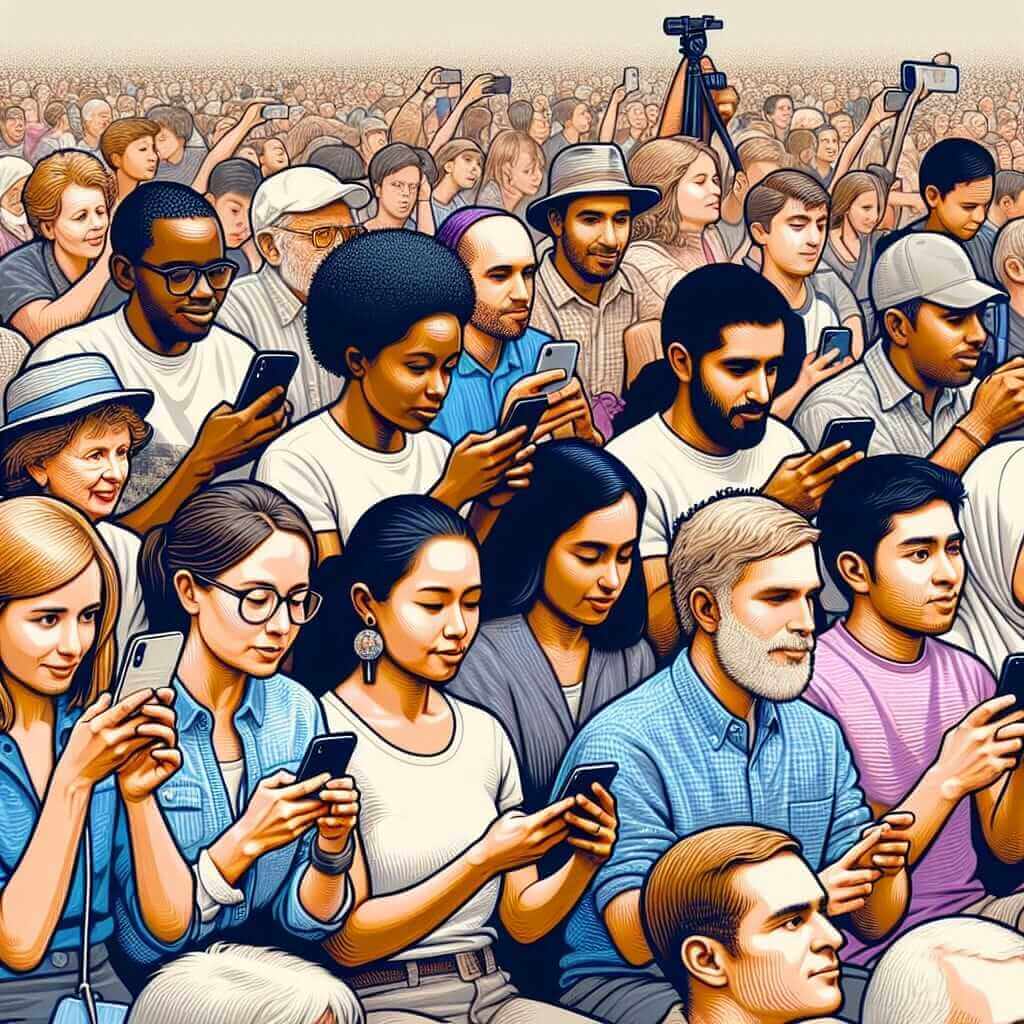The IELTS Reading section tests candidates’ ability to comprehend passages of different lengths and complexities. This test has a notable focus on contemporary issues and academically oriented topics. One such topic that has gained prominence is the effect of social media on political mobilization. By focusing on this subject, you can enhance your understanding and chances of performing well in the Reading section of the IELTS exam.
Social media’s role in political mobilization has been frequently analyzed and discussed due to its significant impact on global political landscapes. The likelihood of encountering a passage related to this topic in your IELTS test is relatively high, given its contemporary relevance and the abundant real-world data supporting its analysis.
Main Content
IELTS Reading Passage: The Effects of Social Media on Political Mobilization
Passage
In recent years, social media has revolutionized the way political movements are organized and executed. Various studies have confirmed that platforms like Facebook, Twitter, and Instagram play a crucial role in mobilizing political activity. This transformation encompasses multiple dimensions – from awareness generation to reinforcing community solidarity and executing action plans.
Firstly, social media has facilitated unprecedented levels of awareness among citizens regarding political events and movements. Real-time updates and viral content have enabled swift information dissemination, overcoming the geographical and temporal limitations traditionally associated with print and broadcast media.
Additionally, social media has strengthened the community aspect of political mobilization. Platforms offer a space where like-minded individuals can congregate, share ideas, and develop a collective identity. These virtual communities provide emotional support, foster a sense of belonging, and keep members engaged with continuous updates and interactions.
Moreover, the mobilization of masses through social media is characterized by the ease of organizing and executing collective actions like protests, rallies, and campaigns. Social media tools allow for efficient event management, including real-time coordination and feedback, making political actions more responsive and adaptive.
Despite these advantages, the use of social media in political mobilization is not without challenges. Issues such as misinformation, echo chambers, and privacy concerns pose significant risks. Fake news and misleading content can distort public perception, while algorithm-driven feeds may reinforce existing biases rather than encourage diverse viewpoints. Additionally, the extensive amount of data shared on these platforms raises serious privacy implications.
In conclusion, while social media has undeniably enhanced the efficiency and reach of political mobilization, it also necessitates cautious engagement and informed participation. The balance between leveraging its benefits and mitigating its risks is crucial for fostering a healthy democratic process.
Questions
1. Multiple Choice
1.1. What is one way social media has changed political mobilization?
- A. It has reduced the need for traditional media
- B. It limits the spread of information
- C. It enables real-time updates and viral content
- D. It eliminates privacy concerns
2. True/False/Not Given
2.1. Social media only plays a positive role in political mobilization.
2.2. It is easier to manage events and coordinate actions via social media.
3. Sentence Completion
3.1. Social media has transformed political mobilization by __ the way information is disseminated and actions are coordinated.
4. Matching Information
Match the following impacts with the corresponding explanations:
- Awareness generation
- Community reinforcement
- Event organization
A. Offers real-time updates and viral content
B. Facilitates efficient event management
C. Provides emotional support and sense of belonging
Answers
Multiple Choice
1.1. C. It enables real-time updates and viral content
True/False/Not Given
2.1. False
2.2. True
Sentence Completion
3.1. altering
Matching Information
- Awareness generation -> A. Offers real-time updates and viral content
- Community reinforcement -> C. Provides emotional support and sense of belonging
- Event organization -> B. Facilitates efficient event management
Common Mistakes
- Overlooking Key Details in the Passage: Many candidates miss critical content by reading too quickly. It’s crucial to read attentively to understand the gist and key points.
- Misinterpreting Questions: Ensure you understand what each question asks. For instance, True/False/Not Given questions require different logical assessments.
- Time Management: Allocate time wisely among reading, analyzing, and answering to avoid rush decisions.
Vocabulary
- Facilitate (v): /fəˈsɪlɪteɪt/ – to make something easier or less difficult
- Mobilization (n): /ˌmoʊbəlaɪˈzeɪʃən/ – the action of organizing and encouraging people to act in a concerted way
- Echo chamber (n): /ˈɛkoʊ ˌʧeɪmbər/ – an environment where a person encounters only beliefs or opinions that coincide with their own
Grammar Focus
- Present Perfect Tense: Used to describe actions that have occurred at some point before now. For example, “Various studies have confirmed that platforms like Facebook, Twitter, and Instagram play a crucial role.”
- Cohesive Devices: Words like “additionally,” “moreover,” and “despite” are used to link ideas smoothly.
Conclusion
To excel in the IELTS Reading section, constant practice with passages drawn from relevant, contemporary topics is crucial. Understanding the layered impacts of social media on political mobilization will not only prepare you for potential exam questions but also enhance your awareness of this powerful tool in modern society. Remember to manage your time effectively, read attentively, and consistently review your answers.

By understanding and practicing with these strategies, you’ll position yourself for success in your IELTS Reading exam. Good luck!